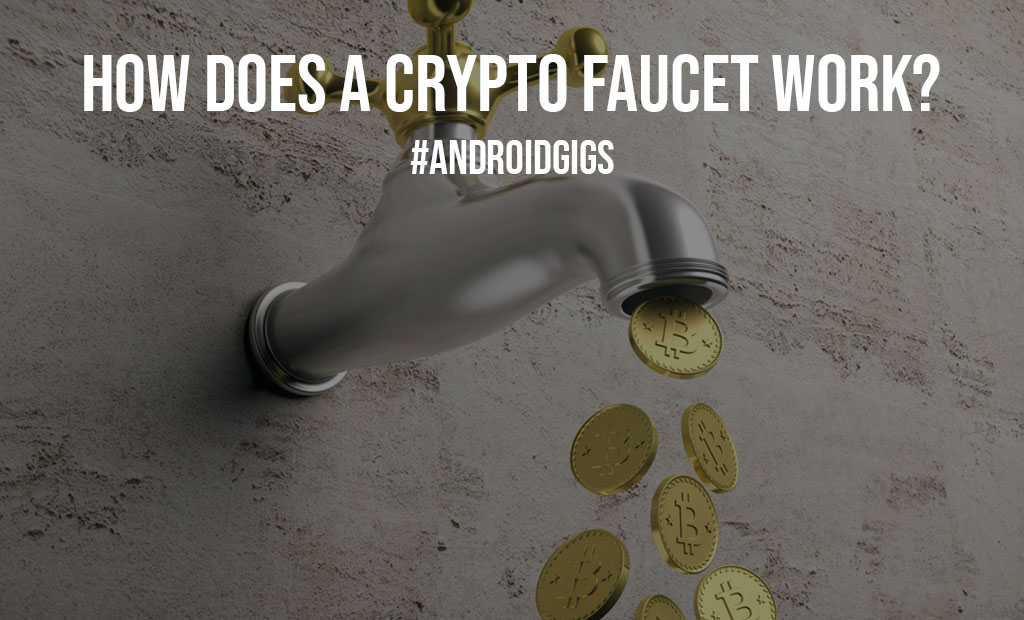People who are just getting started in the crypto markets might buy their tokens from an exchange, physical “ATM,” or banking app like CashApp. Some cryptocurrencies, however, may use faucets to distribute tokens to investors.
These faucets may or may not be official, but they all rely on the same principle. Users can navigate to the faucet operator’s web page, perform a simple task, and receive a small amount of cryptocurrency in exchange for their effort.

In this brief article, we’ll discuss more how crypto faucets work, the best ways to earn faucet crypto legitimately, and how to keep from falling prey to faucet-based scams.
History of Faucets
Faucets might seem trivial in the age of large exchanges and wide adoption. However, during Bitcoin’s inception, faucets were instrumental in helping others adopt decentralized money.
In 2010, American programmer Gavin Andresen was an active participant on the Bitcointalk forums alongside Satoshi himself. Early adopters, after joining the forum, often asked miners for a small amount of bitcoin from the kindness of their hearts. Andresen’s solution was to create a website where aspiring investors could fill out a captcha and receive a small amount of whole BTC.
The “Bitcoin Faucet,” as he called it, began with 1,100 BTC from his personal fund. Miners and other generous pioneers later donated their own faucet bitcoin to reach as many newbies as possible.
A single faucet user could claim 5 BTC per address per day. This might not have seemed like much in the early days, but people could eventually build a decent portfolio if they kept returning to claim their tokens. As of this writing, if someone held on to just one day’s worth of faucet Bitcoin, they’d have an extra $220,000 USD in their pocket!
Andresen’s experiment died in 2011 when funds ran dry. It had dispensed 19,715 BTC worth of tokens and created many loyal followers. Had the faucet not been created, it would have been much more difficult to use Bitcoin to purchase goods and services and gain legitimacy as a decentralized project of value.
Altcoins also began to make use of faucets, even giving them their own unique terminology; Dogecoin, for example, calls them waterbowls. As DOGE has no market cap, miners have used water bowls as a tool to distribute the new tokens they generate.
Today’s Crypto Faucets
Modern crypto faucets are available online for most major tokens, including Bitcoin, Ethereum, Dogecoin, Litecoin, and Monero. In many ways, they have become more interactive for users. Rather than completing a captcha, you may earn tokens by winning a game, watching a video, or viewing an advertisement.
As many faucet sites rely on advertising for revenue, you may also be asked to turn off your adblocker to complete or even see the required tasks. Other faucets may have multiple different task options for their users, with the more complicated ones netting marginally more crypto.
Some faucet sites rely on “microwallets” for their operation to cut their own overhead. Rather than you entering an address and completing a task for instant payment, you may log in with a conventional account and have the tokens you earn deposited into escrow.
If your preferred faucet uses a micro wallet, you might be able to send crypto to your primary address after a certain time period or once you have earned a certain amount of tokens.
Keeping Your Faucet Crypto Safe
The nature of a faucet is purportedly to provide users “free money” with little or no catch. Some of them do this legitimately, but the very nature of a faucet makes their users more likely to come across scams. How do you tell if a faucet is legitimate, and what are the best ways to stay safe while using a faucet?
- Start with faucets from large crypto exchanges. Coinbase and CoinMarketCap both operate “earn while you learn” programs that act like faucets. With these programs, you’ll take lessons about common cryptocurrency topics in exchange for a small amount of faucet crypto. Some lessons revolve around up-and-coming tokens, in which case you’ll earn a small amount of that token. Note, however, that the funds you receive are one-time; when you’ve completed all the lessons, you won’t be able to earn more tokens.
- Be careful around micro wallet-based faucets. Microwallet-based faucets aren’t always reliable when it comes to accessing your earned funds. Some users have reported being unable to access their earnings. Other fake “faucets” may convince users they are earning crypto, then shut down without warning and deny them any prospects of a transfer.
- Don’t deposit your own crypto into a faucet. A legitimate faucet will never ask you to deposit your own crypto.
- Don’t click on just any advertisement. While advertising offers many faucet owners a stable source of income to purchase and distribute crypto, they may not verify the safety, integrity, or legitimate practices of the ads lining their pages. You may see plugs for fraudulent crypto schemes making grandiose promises of exponential returns. Other ads may be linked to spyware, tracking cookies, or other more general malicious tools.
- Be careful about gambling. Some faucets allow you to gamble with the crypto you earn, promising large sums to the winners. It’s easy to get captivated by these prospects, but the odds are likely rigged against you. It’s better to keep the small funds you earn.
- Steer clear of installing software. Some faucets may ask you to install software on your PC or phone in exchange for more crypto. Besides more basic threats such as spyware, this software might also take advantage of your device’s processor to mine tokens without your full consent. The energy this mining requires might alter your device’s behavior or cost you more fiat money than the faucet crypto you earn.
Summary
Faucets can be a valuable tool to help newbies in the crypto space. If you keep logging in, solving tasks, and following waiting periods, you’ll have a small amount of coin to hold, invest, trade, or spend.
The most important thing you can do as a faucet user is to keep an eye out for scams that sound too good to be true or which might prey on new investors.
